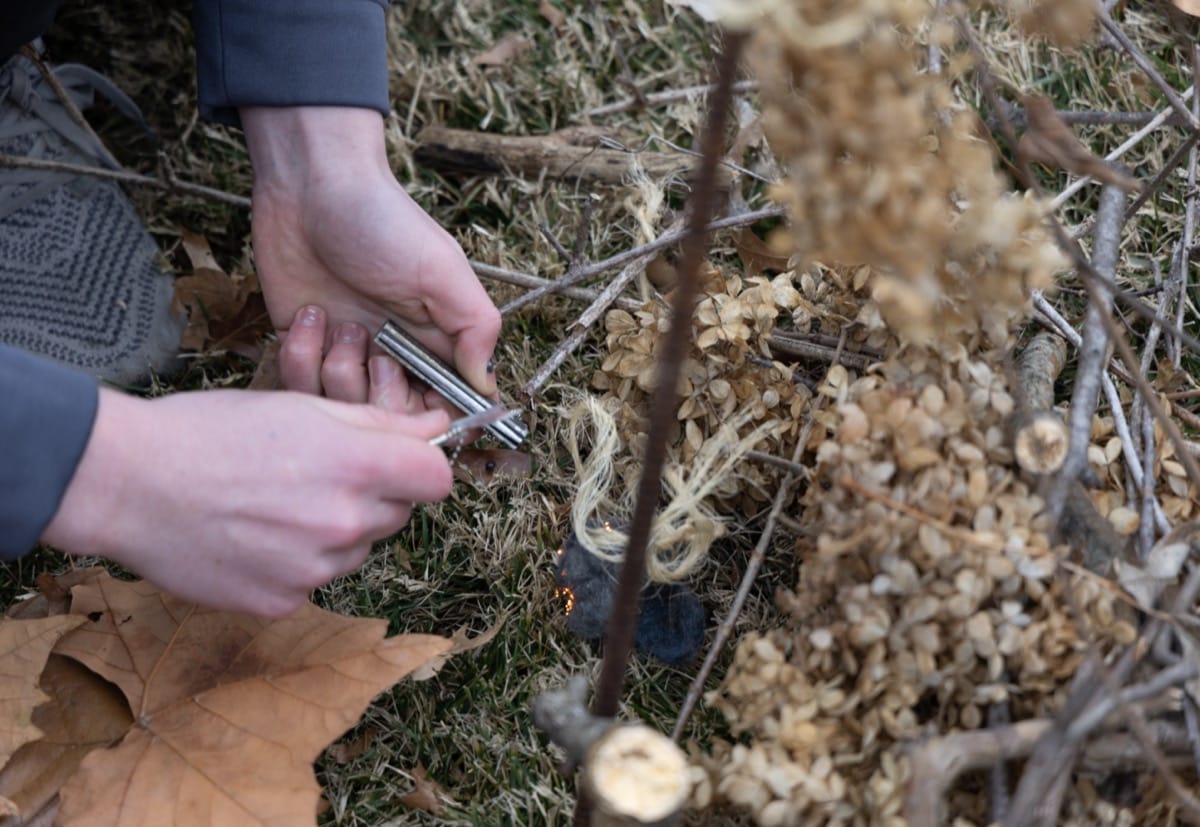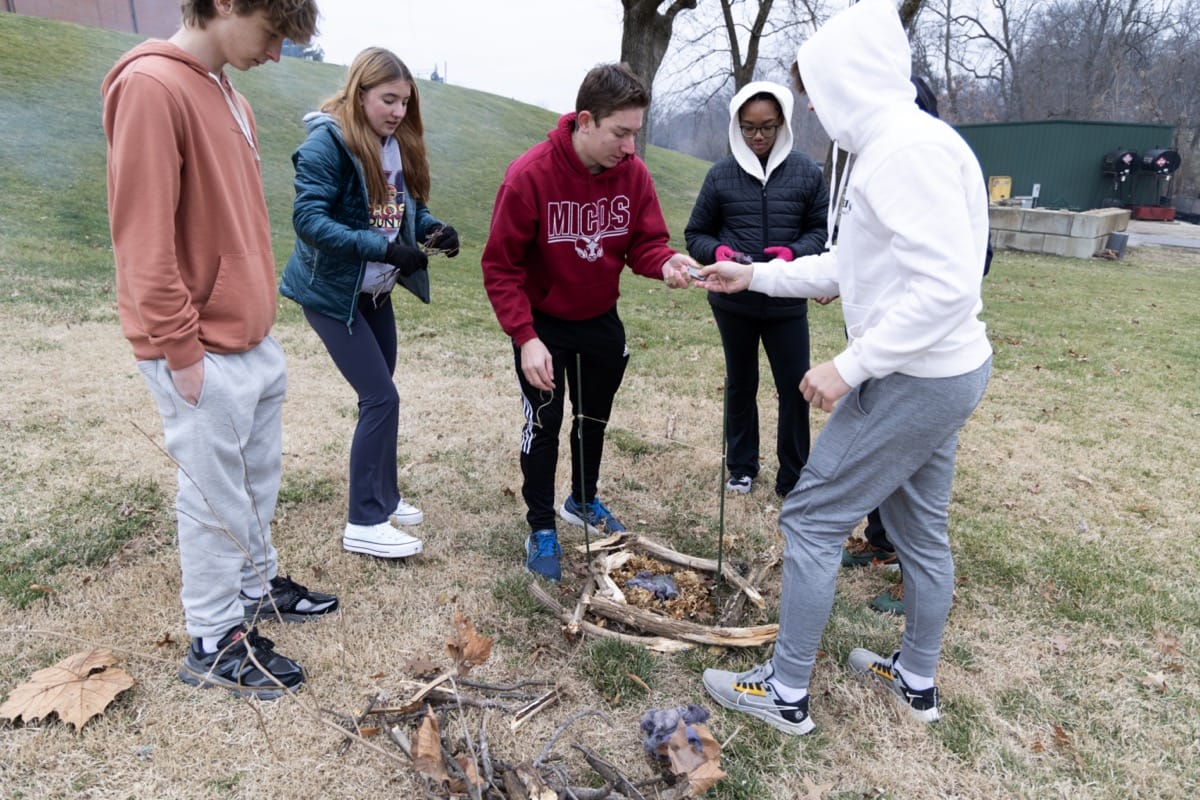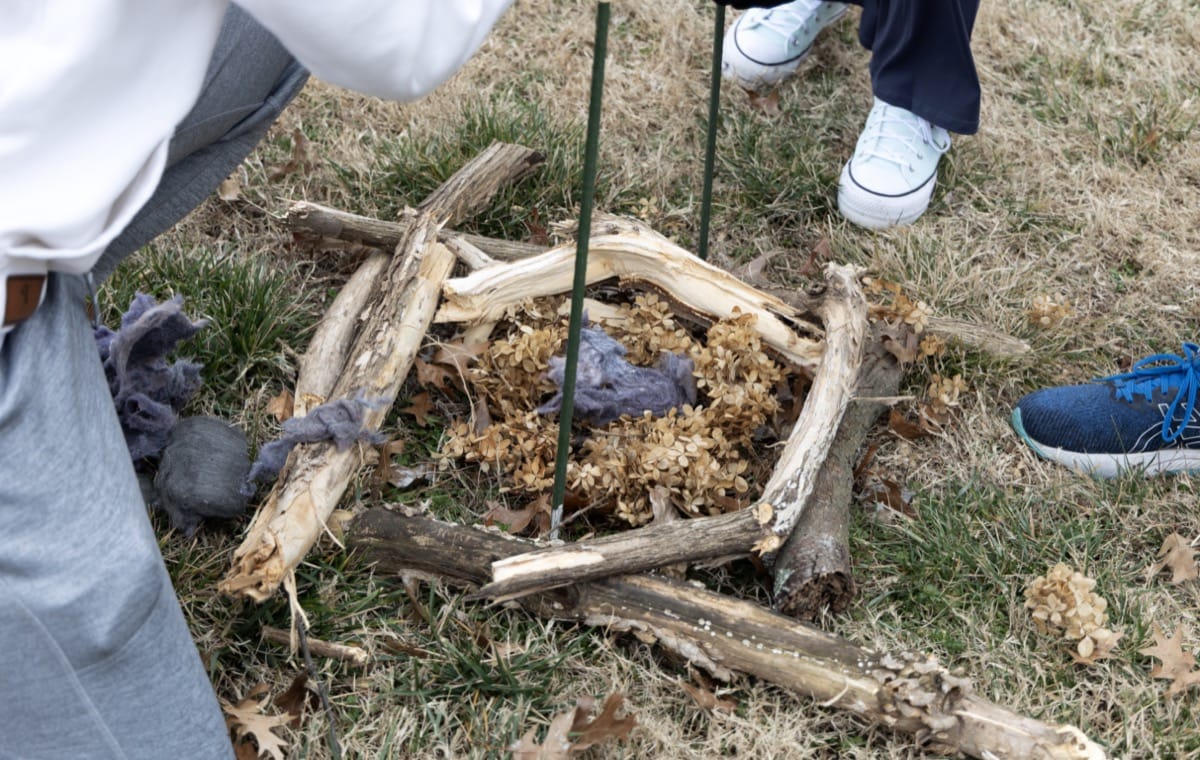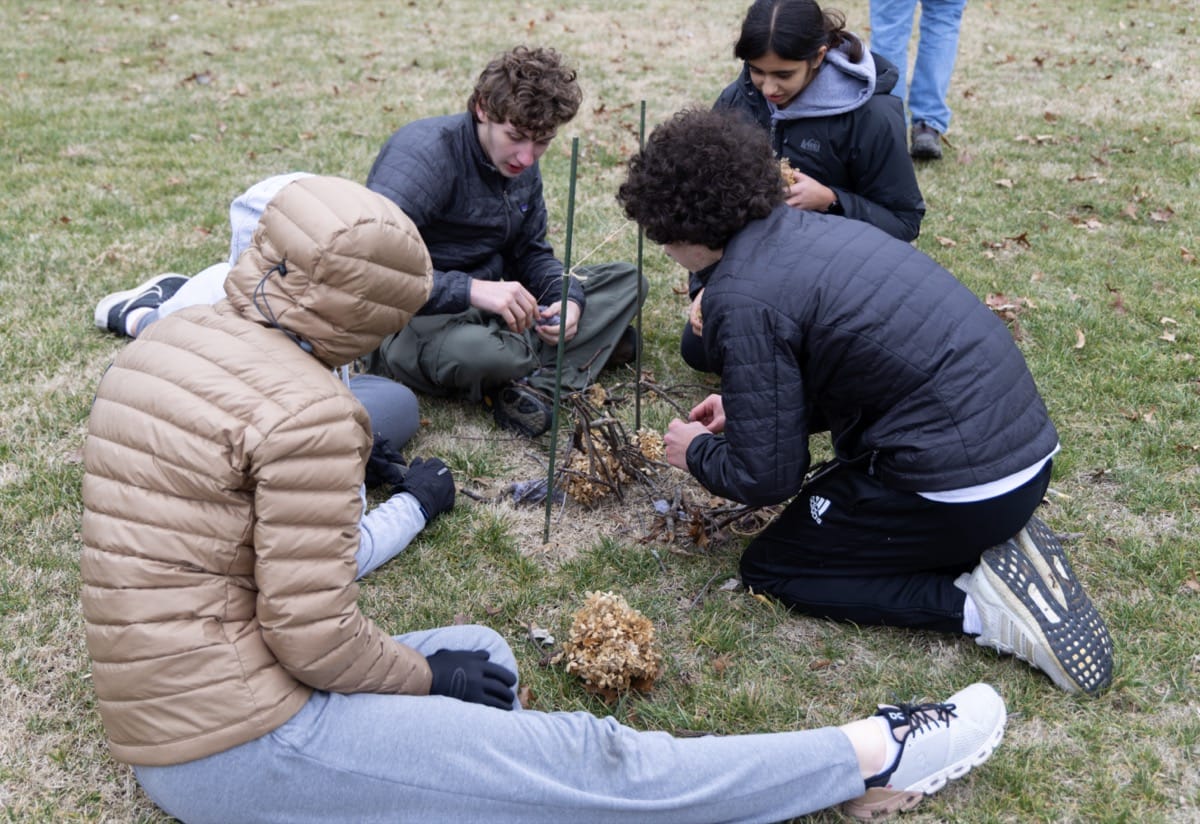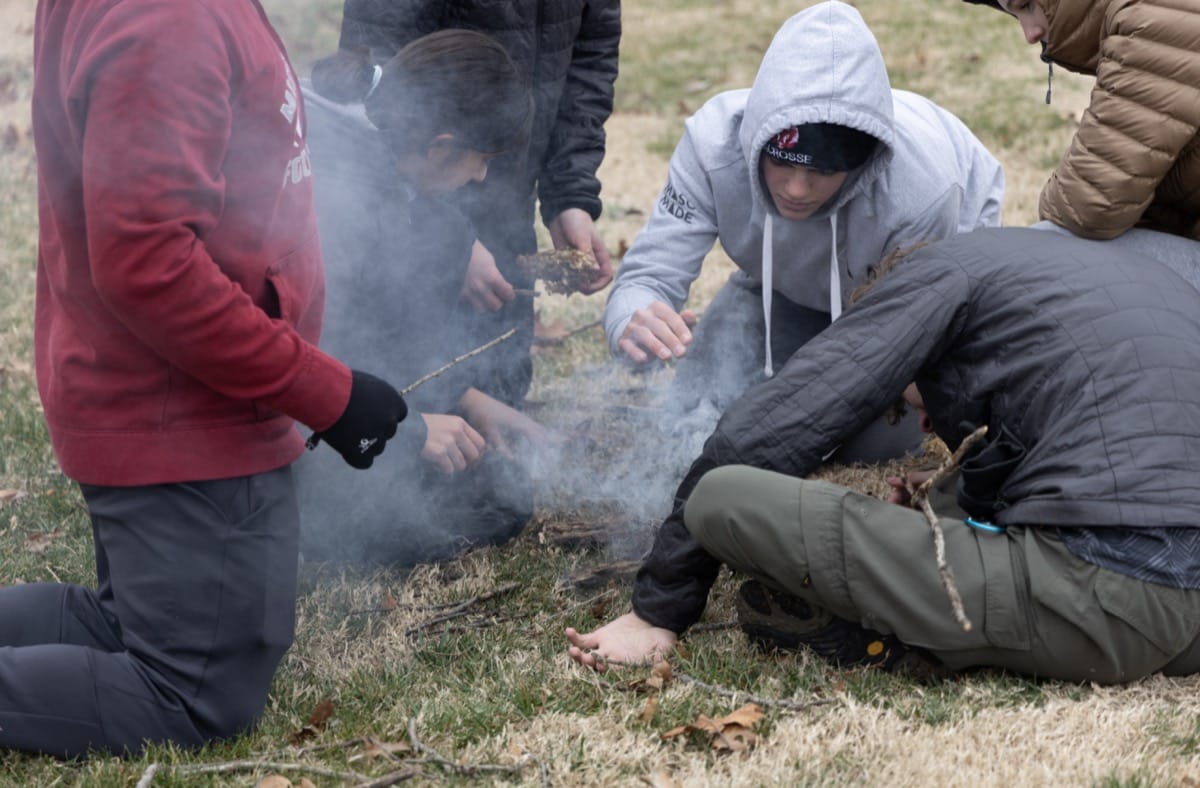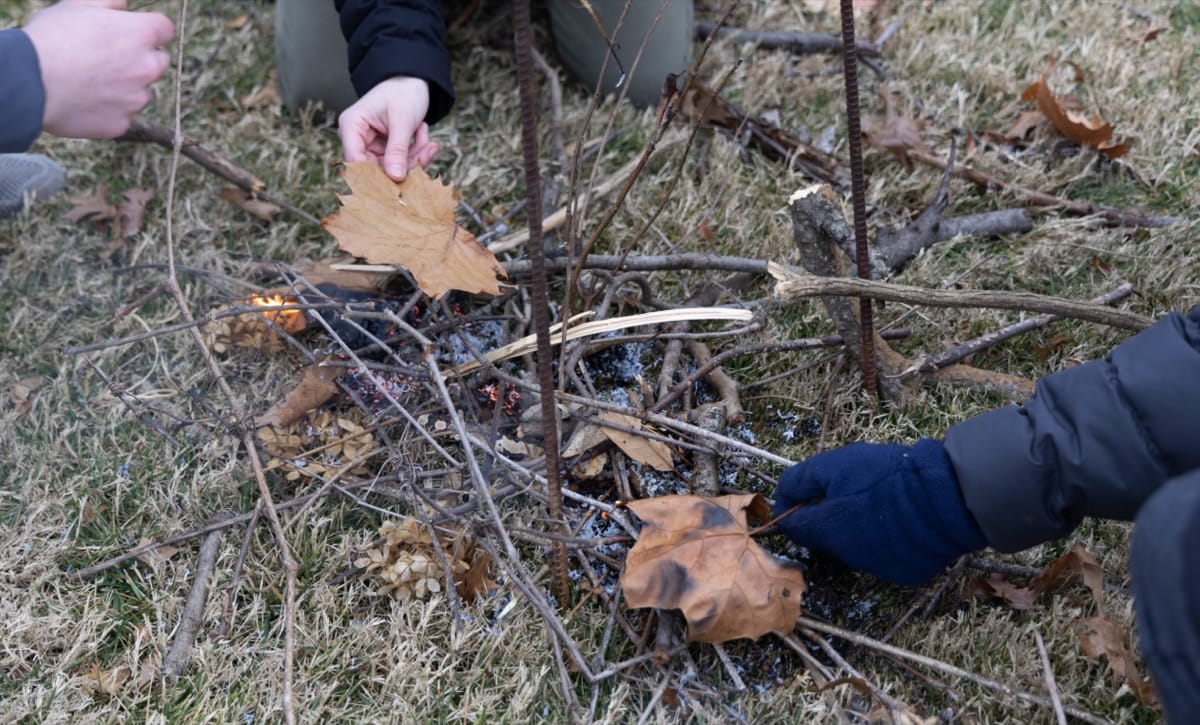Story and Photos by Ana Chu ’24
Upper School Science Teacher Brian Coco and Upper School Dean and Math Teacher Chris Ludbrook led the Winter Term afternoon Survival 101 course, which taught students how to survive outdoors with minimal materials. They learned how to start fires with a variety of materials, including flint and steel, raced to be the first ones to build a fire tall enough to burn a string suspended approximately two feet in the air, build a shelter using a tarp and rope, cooking, wayfinding with a map and compass, and first aid. This course was open to anyone regardless of experience; Coco said that the students “have a wide variety of outdoor experience,” and they worked to “find activities that challenge the expert students yet do not scare or overwhelm the beginners.”
Coco chose to teach this course because he wanted to be involved in a class that shared his passion for outdoor activities. He hopes that students will learn how to properly respect and embrace the outdoors, having gained knowledge and courage from their Winter Term experience. He notes that you can “see significant growth in all of our students” and how they “have embraced the challenge of not always succeeding at first,” and that it “has been great to see the perseverance.”
Ludbrook enjoys spending time outdoors, so teaching this course did “not feel the least bit like work” to him as he enjoys spending time outdoors. He hoped to “share some of the most basic skills needed to get started in the outdoors and plant some seeds within the students that can lead to adventures down the road.” He states that “a teacher can show you how to use a flint and steel, but it’s up to you to learn how the tool works in your own hands” and that he and Coco have “seen so much growth in skills and have appreciated [the students’] willingness to take feedback from each other and from their failures to shape the skills moving forward.”
CeCe Harris ’25 said that her favorite memory was how her group was able to adapt from not being able to build a fire the first day to building a great one the next day. She thought that it was “really cool to see how just one day changed how our group worked together.” She recommends the class for anyone who “enjoys the outdoors, working as a team, and learning important life skills.” One of the skills she learned was how to diagnose and treat the various stages of hypothermia. Though she went into Winter Term apprehensive, she realized that the class was “so fun and engaging” and she’s “super happy that she chose to take it.”
Carli Salazar Estrada ’25 and Kate Hunter ’25 both agree that the most memorable part of class was wayfinding with a compass but also getting lost trying to navigate. Hunter said that she has now learned “how to properly navigate with a compass and how to problem solve in a survival situation.” Both also highlighted the practical applications that the course taught; Salazar Estrada noted how different environments can challenge campers due to varying levels of difficulty without the direction of GPS, and that when building a shelter, it is essential to find a suitable plot of land.
James Snyder ’26 appreciated the experience as it was an opportunity to “participate in a class that does not normally happen and meet new people as a part of this” and said that he “would take it again” in the future.
